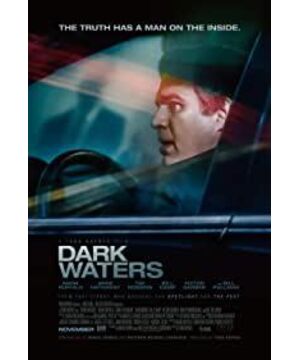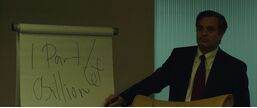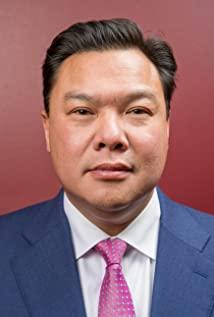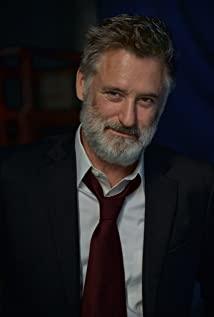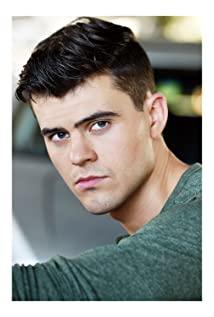People who are aware of current affairs adapt to society. People who are ignorant of current affairs insist on trying to adapt the world to themselves. Therefore, all progress depends on the person who does not know the current affairs-Bernard Shaw
Some people say that the choices a person makes at a critical moment in his life are enough to portray all of his personality. It has been 21 years since the beginning of the 1998 case. Twenty-one years, for most people, means 2/3 of a career. Each character in the film faces many difficult choices, and each of these choices constitutes a whole ups and downs and exciting story line.
1. Non-mainstream lawyers
You can say that Bilott is a non-mainstream lawyer, or you can say that he is a renegade. Attentive audiences will find that Bilott is somewhat out of place in most elite social occasions. He chuckled slightly, his speech was relatively slow, and his demeanor was a little dull. He didn't look like a generous lawyer defending large corporations. At dinners on different occasions, he always appeared slightly restrained, as if he was always separated from the capital world dominated by white people.
This is certainly related to his experience. His father was an Air Force colonel, so he was forced to follow his father around from a young age until he met Terp and his wife Sarah from TAFT law firm. He graduated from Ohio State University's law school. If you understand the American legal system, you may know that to find the best job, you often need to enter the so-called T14 (top 14). In fact, if you want to get the best job in the field of law, that is, Coroprate Lawyer, you may need the top six schools. This is the class concept of an elite society, and Ohio State University is clearly not among them. Therefore, after graduating from OSU, Bilott only found one position as an environmental law lawyer. It is worth mentioning that when Bilott first joined TAFT law firm, he did not have any lofty ideals. "My family told me that there are many opportunities in big law firms, so I want to take advantage of the best career opportunity I can find."
2. Suicidal choices
When Bilott joined TAFT, partner/owner Terp commented on him, "Bilott is a particularly outstanding lawyer: very smart, energetic, tenacious, and very thorough research." This is undoubtedly verified in the film. When DuPont sent half a century of relevant information to TAFT's basement in order to make things difficult for him, he was not conquered by the huge amount of information, but began to organize and archive the information in an orderly manner. This is the manifestation of the qualities of a good lawyer. However, professional ability and whether it can be among the top elite class are intertwined, seemingly not inevitable.
One thing Hei Shui moved me very much was that the many conflicts he created were not only the conflicts between the characters, but also the conflicts within the characters. When West Virginia farmer Tennant found Bilott, Bilott's career was actually written. Tennant’s farm killed 190 cattle in just a few years. Before that, Tennant sold 66 hectares of land to the chemical giant DuPont because of illness and lack of money. DuPont subsequently treated these lands as good garbage dumps, mainly dealing with a hazardous chemical raw material called PFOA. Such raw materials flowed into Tennant’s home from upstream, and the cattle died as a result, and the organs and teeth were abnormal. Tennant himself was also diagnosed with cancer. He knew that the entire town had been bought by DuPont and could not find a local lawyer. He knew Bilott's grandmother and knew that her grandson was a good lawyer, so he found Bilott.
As a result, Bilott, who has just been promoted to partner, must face an extremely severe test. He knew in his heart that when he first studied environmental law, he felt that "environmental law seems to have a real and visible impact on society, and you can change something through practice." When he got this case, Hearing Tennant’s strong Appalachian accent (his grandmother had a similar accent), he knew "I should help him because I feel this is the right thing." The decision he has to make is very difficult, because if he chooses to give up Tennant, his conscience will be condemned for a lifetime; if he chooses to help Tennant, then he will not be able to get any other chemical companies to give him orders. This is very serious. So when he first sued DuPont, DuPont’s in-house lawyer Ripley said on the phone, “I forgive you,” because if Ripley chooses to openly rupture with Bilott, Bilott will serve as a defense lawyer in the corporate environment. Even the career is over. Although this choice seems natural in the movie, the inner suffering of the protagonist and the worried look on Bilott's face require the audience to savor carefully.
This is also a challenge for the farmer Tennant. The people in the small town have good jobs because of DuPont. They hate Tennant for exposing the suspicious behavior of the employer, and even the waiter in the restaurant is unwilling to talk to Tennant. Tennant was desperate and became a lonely man in the small town. He changed four churches in a row, and every time he went to a church, he was blinded. Later facts proved that after the investigation of DuPont was launched, DuPont had to lay off some employees, and a line was formed in front of the "Unemployment Hall". In order to assert his power and justice, Tennant undoubtedly caused harm to some innocent vested interests similar to his social class. The problems in the social field are inextricably linked, precisely because there are too many stakeholders (Stakeholders), and these stakeholders often violate their demands. Sometimes the principles you adhere to may be a kind of injustice and harm to them. Researchers in the social field have used a lot of experience and pen and ink to describe how to think about balancing various stakeholders, but the final conclusion is often that "the world is difficult to be black or white, and it is often necessary to find a balance in the gray area."
To some extent, Bilott and Tennant are the same. They are somewhat out of touch with the society around them, some are out of place, and some are mavericks. Their choices were all "suicidal" in a certain sense. One that killed his own career (after starting the case, Bilott no longer could bring clients in the chemical industry to the law firm, and the lawsuit against DuPont was successful. His only pursuit in twenty years), one that killed his own social life. Tennant attended the service in the last row of the church and couldn't sing hymns; Bilott attended the service in the first row of the church and couldn't sing hymns either. One is a high school diploma and the other is a doctor of law. However, at a certain point in their lives, they all found that justice is unreliable, the federal government is unreliable, the seemingly fair judicial system is unreliable, and Jesus Christ is probably even more unreliable - for their own voices , The only thing that can be trusted is themselves.
3. Bravery and justice are soft
Another person in the film that I admire is Terp. Terp is the boss of Bilott and has been secretly supporting Bilott's complaint against DuPont. In an internal partner meeting, the youngest black partner talked about why he thought the law firm should not provoke his potential clients. Terp came up with the case and said that it was the lawyers who gave up their integrity and dignity. This led to the American people’s lack of confidence in the lawyer industry and declared war on DuPont.
When I was undergraduate, the author wanted to be a lawyer, so I joined the largest law brotherhood in North America, PAD (Phi Alpha Delta). As the only Asian (in fact, the only non-native English speaker), I often experience Bilott's "outsider" feeling. Once during a meal, everyone talked about why they wanted to be a lawyer. Everyone at the table said it was for money, and R said the same. I have a very good relationship with R, which is quite surprised, because I always think he has some different ideals. R asked me back, why do you want to study for a doctor of law? I said, I am for Justice. Everyone at the table laughed. R later went to Yale Law School and worked at Cleary Gottlieb Steen & Hamilton after graduation. He undoubtedly realized his ideals. But from this small case, we can also glimpse the mainstream thinking among the American legal elite.
Terp was in such a class, and the dilemma he faced was no smaller than Bilott's. On the one hand, he is a major partner of the company, and it is impossible to ignore the negative impact of the company’s profitability and Bilott’s actions on the company’s customers. On the other hand, he has a sense of justice in his bones and feels that Bilott is doing the right thing, so he wants to support him. . So when the test results were delayed after a large-scale blood test, he had to deduct Bilott's salary to put pressure on him on the one hand and balance the company's expenditures on the other. In a capitalist society, no manager can say NO to the cash flow statement. Bravery and justice are really soft.
4. Not a loser
Compared to the choices of the previous three men, perhaps Sarah's choice was the most difficult. She chose to give up her career and become a housewife because of the promotion of Bilott and the high salary. She felt that she could devote more time and energy to caring for the children. But when the case was delayed, Bilott's salary was deducted four times, and the funds for the three children to go to school were not necessarily available, she finally broke out against her husband. She understands the importance of this case to her husband, but as a mother, she can't just sit back and watch the future of her children.
When she and Terp pressured her husband together and Bilott was sent to the hospital because of a mild stroke, she suddenly awakened and understood the importance of everything her husband pursued. When she confronted Terp word by word, her love for her husband and her support for her career surpassed everything else in her life, "Please don't let him think that he has failed. He is by no means a loser!" In that scene, Anne Hathaway entered the scene in such a way that moved my heart, wave after wave, expanding outward. She may realize that the spiritual support of her and Terp for Bilott is the ultimate source of energy for Bilott to survive and continue to fight.
5. Oligopoly and endless warfare
Bilott successfully collected 69,000 blood samples, realized the formation of the largest sample in modern epidemiology, and established PFOA with kidney cancer, testicular cancer, ulcerative colitis, thyroid disease, and hypercholesterolemia through a team of scientists. , And the relationship between the six serious diseases of pregnancy-induced hypertension, most viewers will feel relieved. However, because PFOA is a non-regulated chemical under the Environmental Protection Agency (EPA), DuPont was able to take advantage of the loopholes in the law to make a complete turnaround, deny all scientific experimental proofs, and reject the rationality of the scientific team's research. This is the consequence of the oligarchic pattern. "Captive Government", Bilott looked desperately at his wife Sarah outside a Chinese restaurant, watching the ruthless world coldly.
Bilott, full of resilience, decided to fight DuPont to the end. DuPont also took the countermeasures of the American tobacco industry in the 1980s, namely, trial by case, delaying time. Because there are 3,500 cases, if compensation is paid at the rate of 4-5 cases a year, it will take 700-900 years to complete the case. The judge asked, "You're still here," Bilott turned around and said vigorously, "Your Honor, yes, I'm still here." This moving scene is undoubtedly the finishing touch of the film.
Here to add: The follow-up story is that DuPont used more than 600 million US dollars to settle the case as compensation for more than 3,500 victims. This ending may be better than the procrastination tactics of the tobacco industry. Afterwards, DuPont and Dao merged to spin off the chemical industry sector as a subsidiary, and became the current Chemour company (Chemour). In the film, Terp mentioned when declaring war against DuPont, "We treat the company as a legal person, and when this person crosses the line, we will punish him." Through this sentence, the film personifies DuPont. When this personified and brazen DuPont, through the usual methods of the capital market, packaged the "toxic assets" into a new company, reappeared under a new name, and in the spin-off agreement, all future potential needs to be liquidated were dealt with accordingly. After the responsibility for the compensation is attributed to this company, whenever news related to PFOA appears again, Chemours' stock price will fall in response. In May of this year, Chemours finally couldn't help it, and started a lawsuit with his former "mother". It seems that DuPont as a "legal person" is really unpopular.
Conclusion:
In "On Duties" (On Duties), Cicero mentioned a metaphor of Hercules (Fable of Hercules). Hercules must make a choice before the two bifurcated roads. He can choose Virtue or Pleasure. The actual translation of these two words in Latin is Delayed Gratification and Instant Gratification. Hercules chose Virtue as one of the twelve great tribulations he will experience.
For many people (such as Tennant in this show), enjoying the book is too extravagant, whether it is instant or delayed. Bilott, the protagonist in the play, chose Virtue, abandoning the huge current wealth and reputation that being promoted to a partner can bring him, and put the importance of people's lives and justice above their heads. His contest with the Goliath giant in the chemical industry was desperate at first, as if it had no end. Bilott is still writing history, chemical companies are still resisting resistance through joint resistance, and our body, perhaps because of Bilott's efforts, will accumulate less chemicals that will never degrade - or maybe not.
But I want to say: Bilott, I admire you. Bilott, I cheer for you, cheer for you.
View more about Dark Waters reviews


